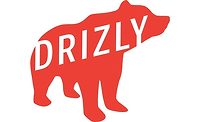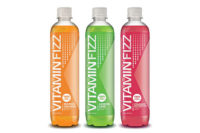Data collection helps retailers, beverage-makers support consumer needs
Drizly, Nielsen announce new platforms that aid clients

If you have a smartphone, tablet or computer, chances are numerous aspects of your life are connected to the digital world. These devices not only serve the everyday consumer in streamlining daily tasks, but also offer a glimpse into your preferences and spending habits. Data collection technology is allowing retailers and manufacturers the ability to develop and stock the products that consumers want or even know the ones in which they should be investing time and money.
Recently, Drizly announced that it’s making a new report available to retailers on its platform that details items selling well — locally and nationally — but are not currently available for purchase at their stores through Drizly’s eCommerce marketplace. The report’s data and insights, provided free as a service enhancement to Drizly retail partners, aims to help retailers increase sales in the short-term and make better informed longer-term planning decisions based on developing trends, the company says.
According to Drizly, the customized report will reveal items that are either physically not on their digital shelf or not currently visible to shoppers on Drizly’s website or apps. Each report is searchable by category (beer, wine, liquor, extras), and reveals the non-shoppable top-selling products as well as each product’s sales ranking on Drizly and whether those sales are growing or declining across user-selected time periods within either the retailer’s local market or nationwide, it adds.
“As the leading platform for online alcohol delivery, we’re in a unique position to effectively aggregate data on a new scale — across our 1,400 and growing retail partners nationwide — and turn that data into actionable insights for those same partners to help them drive their business,” said Scott Braun, chief marketing officer at Drizly, in a statement. “As eCommerce becomes a more central aspect of our retail partners’ businesses, our commitment to helping them succeed through new tools like this only deepens.”
However, eCommerce shopping trends are not the only way in which data collectors are looking to serve those in the consumer packaged goods (CPG)/retailer market.
Nielsen stated that it’s strengthening its Trax-Nielsen alliance with the computer vision solutions provider to enhance shelf insight visibility and advance the way U.S. manufacturers and retailers use computer vision technology. With assistance from sales and marketing service provider Acosta, Nielsen and Trax will enhance offerings within the Trax-Nielsen Shelf Intelligence Suite, which will enable CPG manufacturers the ability to anticipate the impact of shelf conditions on sales, it says.
The companies reported that enhanced Shelf Intelligence Suite now includes three new offerings:
- Shelf Pulse Lite extends the accessibility of shelf data to cater to different business needs and users within CPG brands;
- Shelf Pulse Point allows clients to view prior execution performance by category, thereby assisting future shelf strategies; and
- Trax Retail Snapshot uses crowdsourcing tactics to objectively audit shelf and campaign execution for products at any time and in any outlet or retailer.
“Today’s brands and retailers come in all shapes and sizes, but in order to succeed they all need a strong awareness of what’s selling, what isn’t and why,” said Jeanne Danubio, president of Nielsen Connect for North America, in a statement. “With the continued evolution of the CPG industry, product visibility needs to be equally dynamic. Our expanded, tech-forward alliance with Trax gives brands the tools they need to predict shelf influence on the bottom line.”
As data collection becomes more sophisticated, retailers and beverage-makers will be able to make decisions that are best for their business and ultimately consumers.
Looking for a reprint of this article?
From high-res PDFs to custom plaques, order your copy today!






